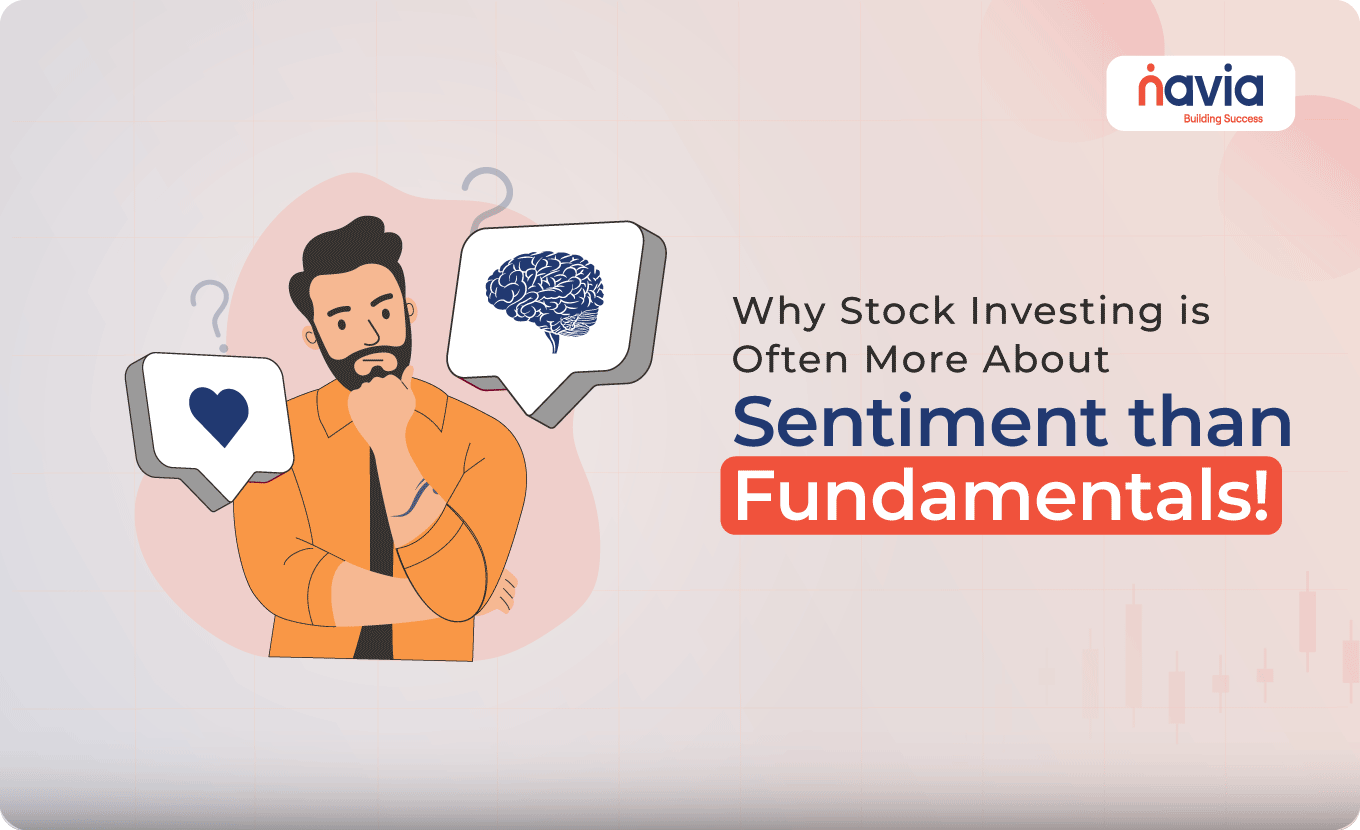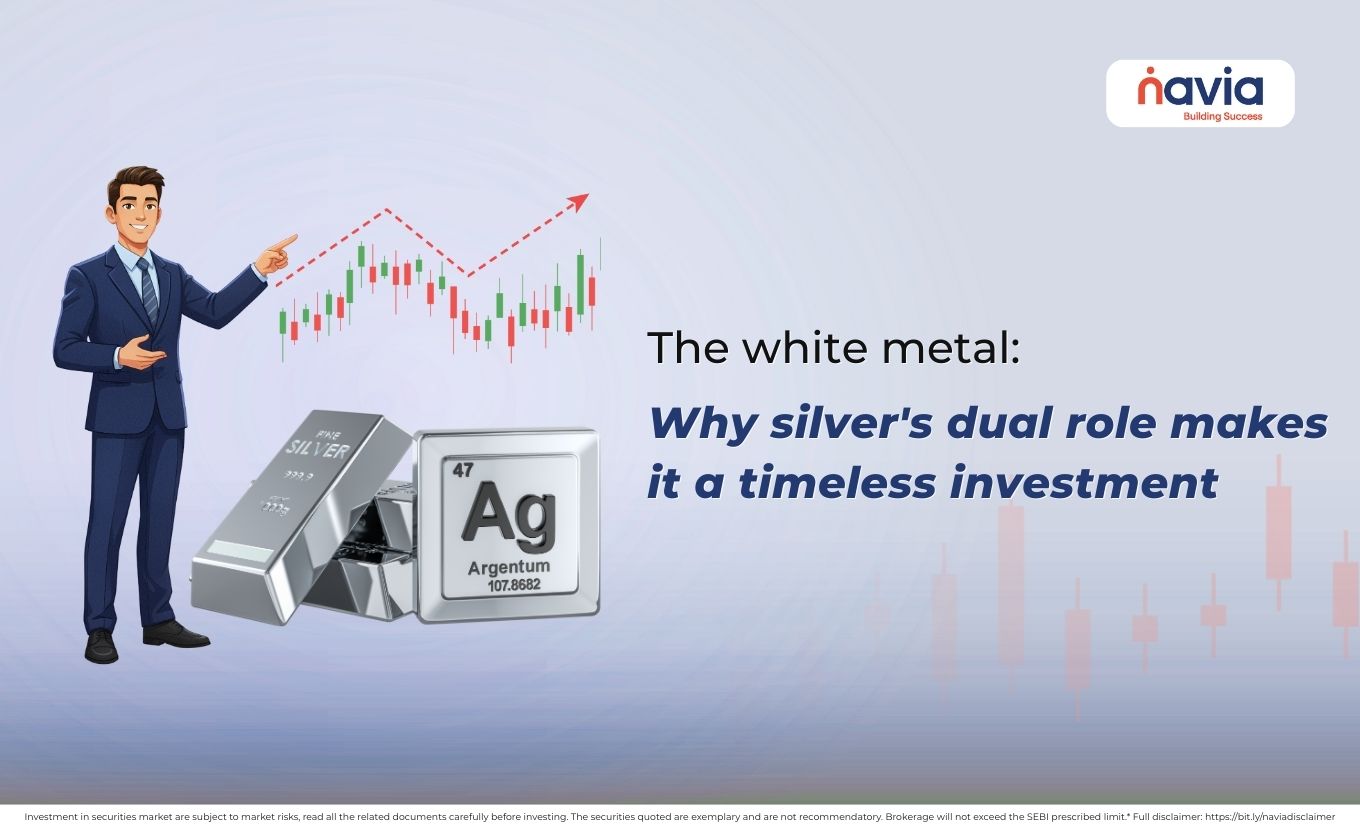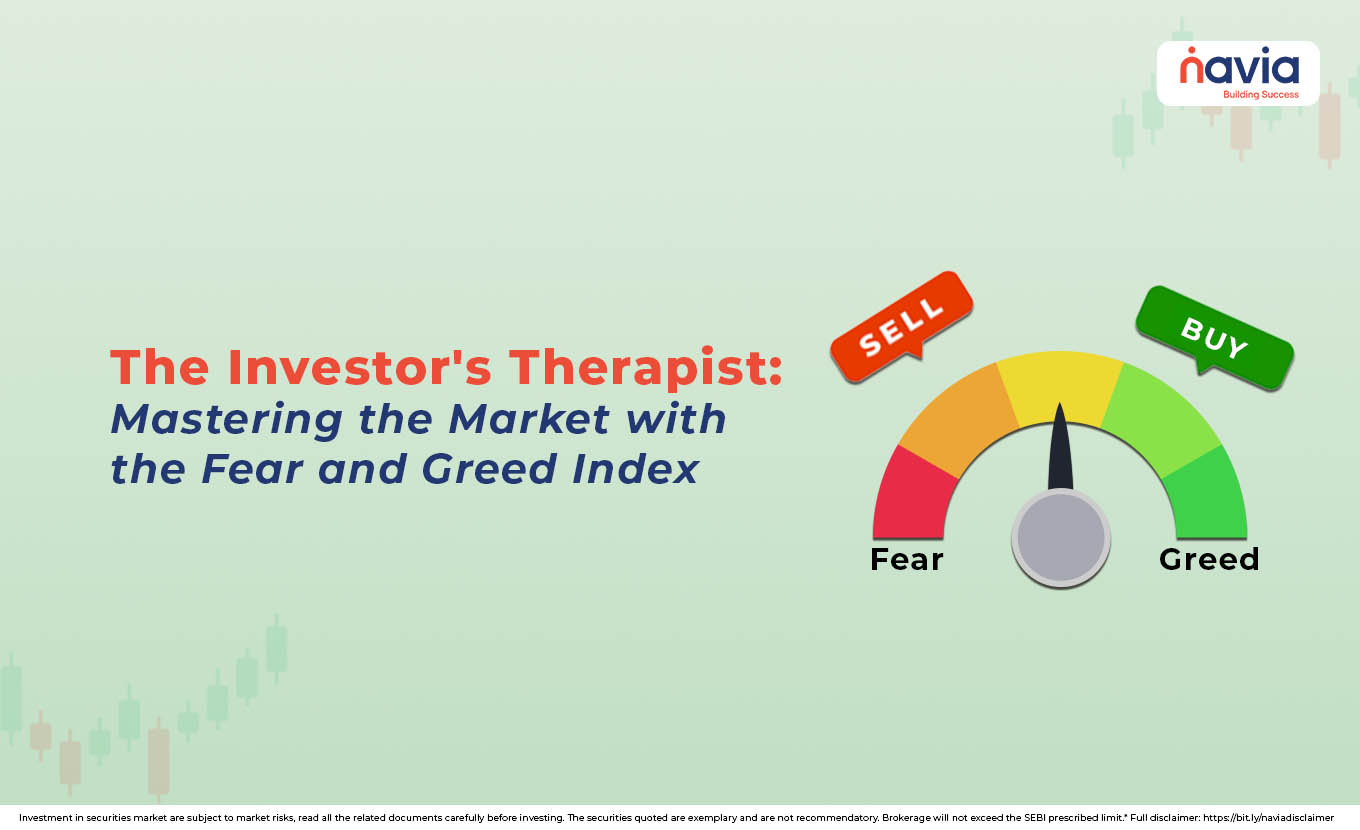Why Stock Investing is Often More About Sentiment than Fundamentals!

In an ideal world, stock prices should reflect a company’s earnings, balance sheet, and long-term growth potential — in short, fundamentals. But the stock market doesn’t always behave like an Excel sheet. More often than not, it behaves like a mood swing.
Welcome to the real world of stock investing, where sentiment often trumps fundamentals — at least in the short to medium term.
What is “Sentiment” in the Stock Market?
Market sentiment is the overall attitude or emotion of investors toward a particular stock or the market as a whole. It’s shaped by:
🠖 News headlines
🠖 Social media chatter
🠖 Global events
🠖 Rumors
🠖 FOMO (fear of missing out)
🠖 Panic selling
This creates demand and supply dynamics that can push prices up or down — regardless of what the company is actually doing.
Real Example 1: Adani Group (2023–2024)
Adani Group companies were market darlings until the Hindenburg Research report in Jan 2023 accused them of stock manipulation and debt concerns.
What Happened?
| Period | Stock Movement | Fundamentals Changed? |
| Jan–Feb 2023 | -60% to -80% in many stocks | No audited proof yet |
| Mid-2024 | Stocks rebounded 100%+ | Assets/projects intact |
Investor reaction — not company earnings — dictated prices. The market panicked, then recovered, based on changing sentiment.
Real Example 2: Zomato IPO & Beyond
Zomato debuted at ₹76 in July 2021, shot up to over ₹150 within months — despite no profits. Then it tumbled below IPO price in 2022.
What’s Driving It?
🠖 Tech euphoria post-COVID
🠖 FOMO in retail investors
🠖 Later, reality checks on cash burn
Fundamentals didn’t change much, but investor mood did.
Real Example 3: Yes Bank (2018–2020)
Once a market darling, Yes Bank’s stock crashed from over ₹400 to under ₹10.
🠖 Fundamentals: NPA issues, governance red flags
🠖 But until late 2018, sentiment was overly optimistic
🠖 Once panic set in, even positive news couldn’t revive the price for months
But Don’t Fundamentals Matter?
Of course, they do — over the long term.
A fundamentally weak company can’t survive just on hype forever. But in the short term, markets are driven more by narratives than numbers.
As Warren Buffett famously said:
“In the short run, the market is a voting machine. In the long run, it’s a weighing machine.”
Why Sentiment Wins in the Short-Term?
| Factor | Sentiment Driven | Fundamentals Driven |
| Intraday/short-term | Mostly | Rarely |
| 1–6 months | Often | Partial |
| 2–5 years | Somewhat | Increasingly |
| 5+ years | Rarely | Mostly |
The “Smallcap Rally” Case Study (India, 2020–2023)
Smallcap stocks rallied sharply post-COVID due to:
🠖 Retail investor influx
🠖 High liquidity
🠖 FOMO and social media hype
Fundamentals like earnings growth didn’t support 50–100% jumps in months. But stocks like Tanla Platforms, Tejas Networks, or Brightcom surged on narratives, not numbers.
Sentiment Indicators to Watch
1. FII/DII Flows – Foreign investors often drive short-term sentiment
2. Put/Call Ratios – Shows bullish vs bearish positions
3. Google Trends / Twitter Buzz – Surprisingly powerful!
4. News Headlines – Especially business TV shows and budget speeches
5. Valuation Divergence – When PE ratios spike despite earnings stagnation

How to Use this Insight as an Investor?
🠖 Don’t chase hype blindly. Sentiment is fleeting.
🠖 Respect momentum, but anchor in long-term value.
🠖 Use volatility to your advantage — e.g., buying quality stocks when fear strikes.
🠖 When sentiment is euphoric, it’s time to be cautious. When it’s panicky, look for bargains.
Sentiment-Driven Stock Checklist
Use this to assess whether a stock’s price is running on emotion, hype, or actual business performance.
1. Price vs Fundamentals Divergence
| Check | Ask Yourself | Red Flag If… |
| Price Growth | Has the stock price gone up >50% in <3 months? | Yes, with no major earnings growth |
| Earnings | Has the company posted consistent profits? | No, or profits are declining |
| Valuation | Is PE or Price-to-Sales at extreme levels vs sector? | Yes, valuation is unusually high |
2. Media & Hype Signals
| Check | Ask Yourself | Red Flag If… |
| News Buzz | Is it suddenly being discussed everywhere? | Yes, but for vague reasons (e.g., “next multibagger”) |
| Social Media | Trending on Twitter, YouTube, Telegram? | Yes, especially with clickbait titles like “100x stock” |
| Influencer Endorsements | Are finfluencers hyping it with no earnings talk? | Yes, with zero focus on fundamentals |
3. Ownership & Volumes
| Check | Ask Yourself | Red Flag If… |
| Retail Spike | Is retail ownership increasing rapidly? | Yes, while FIIs/DIIs are reducing stake |
| Delivery Volumes | Is delivery % low, and speculative volumes high? | Yes, indicating intraday/derivatives-led action |
| Promoter Activity | Are promoters selling or pledging shares? | Yes, despite price surge |
4. Price Action Patterns
| Check | Ask Yourself | Red Flag If… |
| Speed | Has the stock doubled in a few weeks? | Yes, without news or earnings |
| Volatility | Daily swings >10% without justification? | Yes, indicates speculation |
| Events | Are rallies tied to vague expectations (like “Budget boost”)? | Yes, with no clarity on actual impact |
5. Company Health Markers
| Check | Ask Yourself | Red Flag If… |
| Financials | Are debt levels high or RoE/RoCE poor? | Yes, but price is rising anyway |
| Earnings Calls | Does management avoid questions or issue vague outlooks? | Yes, or they use buzzwords without details |
| Auditor Notes | Any auditor qualifications or negative cash flow signs? | Yes, ignored by market |
6. Past Pattern Check
| Check | Ask Yourself | Red Flag If… |
| Previous Spikes | Has this stock had past pump-and-dump patterns? | Yes, and it’s repeating |
| Sector Peers | Are peers not rising similarly? | Yes, may be isolated sentiment hype |
| Operator Rumors | Is there chatter about “circuit-to-circuit” moves? | Yes, likely operator-driven buzz |
Scoring Guide
🠖 0–3 Red Flags: Likely fundamentals-based
🠖 4–6 Red Flags: Mixed, proceed with caution
🠖 7+ Red Flags: High chance of being sentiment-driven — dig deeper before investing
Bonus Tip
Ask yourself — “Would I still buy this stock if no one else was talking about it?”
If not, you’re probably chasing sentiment.
Final Thoughts
While fundamentals are your GPS, sentiment is the traffic. You can’t ignore either.
In India, we’ve seen that stocks often take the elevator up (on hype) and the stairs down (on reality checks) — or vice versa.
Successful investing lies in recognizing the mood, but staying married to the math.
Do You Find This Interesting?
DISCLAIMER: Investments in the securities market are subject to market risks, read all the related documents carefully before investing. The securities quoted are exemplary and are not recommendatory. Brokerage will not exceed the SEBI prescribed limit.






